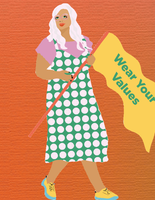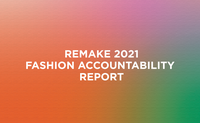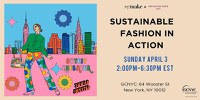Contributions Overview

Remake: Fashion Accountability Report 2022
This blog article was originally published on the Remake website and was written by Sumedha Vemulakonda. Vemulakonda is an ethical fashion advocate and a writer and ambassador for Remake.

2021 Remake Fashion Accountability Report
Remake has updated its approach to holding the industry to account. In writing this report, we relied on the expertise of labor rights organizations; professors of human rights, employment, fashion and law; and experts in the fields of sustainability, environmental justice and circular economy.

The climate crisis is here. The pandemic’s ravaging impact on fashion workers is pulling back the veil on inequalities at the heart of fashion. The industry’s systemic racism is coming more sharply into focus. Moreover, our understanding of sustainability, planetary limits and intersectional approaches to social change is reaching new heights.

2021 Remake Fashion Accountability Report
This year, we’ve updated our approach to holding the industry to account thanks to the expertise of 14 labor rights professionals, professors of human rights, employment, fashion and law and leading experts in the fields of sustainability, environmental justice, and circular economy including Mark Anner (Professor of Labor and Employment Relations, and Political Science, Penn State University + Remake Board Member), Rebecca Burgess (Executive Director, Fibershed), Sarah Dadush (Professor of Law, Rutgers Law School), Anna Heaton (Fiber and Materials Lead: Animal Materials, Textile Exchange), Jeremy Lardeau (Vice President, Higg Index, Sustainable Apparel Coalition), Lewis Perkins (President, Apparel Impact Institute) and Whitney McGuire (Co-founder, Sustainable Brooklyn). Remake’s updated brand assessment criteria, which now enables companies to score up to 150 points, moves beyond celebrating ambitious but hollow goals and targets. Rather, it seeks to measure the 60 fashion companies evaluated based on concrete action and progress towards tackling intersectional social, environmental, economic, and political issues embedded in fashion supply chains. We have built our metrics around a true systems-change approach to sustainable fashion (a transition the industry is at the very beginning of). Rather than applauding companies for material innovations and business as usual, our new methodology rewards companies with resilient and regenerative business models. In the report we unpack our key findings, why we updated our criteria, company scores, our methodology, and how to use the report; sharing specific calls to action for brands, citizens, garment makers, and policy makers.

